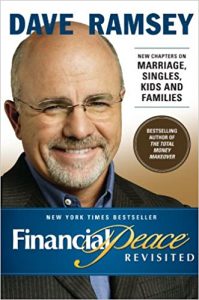Listen to this episode of the Focus with Marlene Podcast:
Get caught up with all episodes in the Moving Beyond Survival series.
Many years ago, an intruder invaded my home. But angels were there also, and I escaped without harm. (You can read my personal story in Heaven Touching Earth: True Stories of Angels, Miracles and Heavenly Encounters, a book of stories compiled by James Stuart Bell, available on Amazon.)
Fear is a critical survival warning system.
It triggers our fight/flight response system to meet any threat by fleeing, fighting, or remaining frozen in place.
When you have experienced fear, it becomes a reminder to put preventive measures in place, such as locks on our doors or avoiding parking in dark places at night.
Perception of danger of any kind will trigger fear. It can be an internal gut feeling that tells you something is not right or a heightened awareness of what is going on around you.
Healthy fear not only prepares us to respond but also reminds us to be careful and cautious when in unfamiliar territory. Healthy fear is based on what is happening in the moment. It prepares us mentally and physically to take action when and if required.
After my home break-in, we purchased a German Shepherd who became a very reliable deterrent, allowing me to relax at home without any heightened fear.
Creating paper dragons
Fear can be our friend, or it can be our enemy. It can prepare, instruct, and keep us safe; or it can become a huge threatening shadow that keeps us locked in doubt, worry, uncertainty, and helplessness.
Ongoing fear replayed over and over in our mind will create unending anxiety.
We can allow fear to so monopolize our lives that we are constantly playing the “what if” game.
- What if I can no longer live alone…
- What if my money runs out as I get older…
- What if I can’t pay my mortgage…
- What if I get a serious illness…
- What if I have trouble making new friends…
- What if I’m not good enough…
- What if…
The list of what ifs can go on forever.
When times get tough, this kind of internal dialogue can become pervasive and dominate our thinking. The what ifs become so real that we defend their existence and refuse to think positively about anything we can do or are capable of doing. We become consumed by the terror of what might happen without adequately checking out whether they are realistic fears.
This is called creating a fear dragon or paper dragon. The problem with paper dragons is just that – they are created – they are not real.
The fear is the fear of being inadequate. We become fearful of making wrong decisions.
Understanding the beliefs and thoughts that maintain that fear can be liberating. If we can create them, we can replace them.
Healthy fear
Healthy fear can be the precursor to putting in place preventive measures. Pay attention to that niggling doubt or feeling of fear.
Pay attention to your intuition.
Check out troubling symptoms that just don’t seem right. That includes relationships, changes in behaviors in your teens or children or health symptoms that keep recurring (ones you don’t want to address). It may be an underlying concern about aging parents. It may be that infer voice telling you to watch your spending habits.
We need to pay attention.
What fears are you experiencing?
What can you do if you have ongoing anxiety, fear, or even feelings of panic?
First, ask yourself:
- What is creating this fear?
- Is it legitimate and real?
Are you fearful of physical danger? Check the locks on your windows and doors and replace them if old. Be sure doors and windows are locked before going to bed at night. If shopping at night, park where there is adequate light and be sure your car is locked. If you love to go hiking, go with a companion. You can develop the habit of being aware of your surroundings without being in constant fear.
Maybe you have a good job and are constantly in fear of making a mistake and losing that job. That underlying fear can become a deterrent to doing the best you can. We are not perfect. We will make mistakes. But we can focus on doing the best we can and relax into that.
If you are a worrier and find yourself asking, what if… more often than you want, remember that what ifs are future events that you are worrying about in the moment.
Put in place a preventive.
Get additional information. For example, what if the economy tanks and I don’t have enough money? First, do a review. What do I currently have? How can I spend less money? How can I create a larger reserve account? Read some books on the subject or talk with a financial planner – one who is honest and respected. It might be money well spent.
 A good book on the subject, Financial Peace Revisited, by Dave Ramsey, was written for the average person to apply the principles of managing money.
A good book on the subject, Financial Peace Revisited, by Dave Ramsey, was written for the average person to apply the principles of managing money.
What if you are worried about becoming seriously ill as you age? Put in place a healthy lifestyle right now. Do what you can to eat healthier, exercise, etc. Anybody can get a serious illness at any time in life. None of us are immune. But we can do more to create a healthier lifestyle. And constant worry and anxiety can become an illness.
Make a list of your strengths.
Include the times when you made good decisions. Evaluate the pros and cons of your decision-making. Which can help you eliminate or reduce many of the what if fears?
Whether you are worried about the high cost of living or having enough finances, or if you are experiencing undefined, ongoing anxiety, confront it.
- What actions can I take now to feel more secure and protect me in the future?
- How can I better understand myself so I can confront my fears?
Anxiety and ongoing fear can lead to panic attacks.
When you sense your fear rising, take some slow calming breaths and remind yourself that you are okay – you are not in physical danger. Then identify the underlying cause of your fear.
When fear and anxiety levels are lowered, we can think rationally, problem solve, conceptualize options, and formulate new plans of action.
When we accept the least pleasing aspect of ourselves, it no longer creates an unreasonable fear of making mistakes or looking foolish. Becoming proactive is using fear to our advantage.


